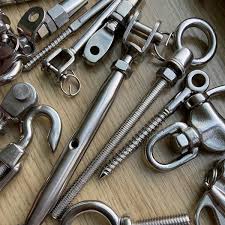Structural Hardware
Product Code:
Structural Hardware refers to a range of components designed to support and stabilize the structure of buildings, machinery, and various industrial applications. This category includes essential fasteners such as bolts, nuts, washers, anchors, and brackets, which are engineered to handle heavy loads and withstand demanding conditions. Structural hardware ensures the integrity and stability of structures by providing strong, reliable connections between different parts.
What types of materials are used for structural hardware?
Structural hardware is typically made from high strength materials such as steel, stainless steel, and alloys. Some components may also be made from composites or plastics depending on the application requirements.
How do I select the appropriate structural hardware for my project?
The selection depends on factors like load requirements, environmental conditions, and the specific structural needs of your project. Consulting with a structural engineer or hardware specialist can help ensure you choose the right components.
Are custom sizes and specifications available for structural hardware?
Yes, many structural hardware components can be customized to meet specific size, thread, and material requirements. Contact the manufacturer or supplier to discuss custom options.
How can I ensure the longevity and performance of structural hardware?
Choose hardware with appropriate coatings or treatments for corrosion resistance, and follow proper maintenance procedures. Regular inspections and adherence to installation guidelines will also help ensure long term performance.
What are common applications for structural hardware?
Structural hardware is used in a variety of applications, including building construction, bridge construction, machinery assembly, and infrastructure projects. It plays a crucial role in reinforcing and stabilizing structures across different industries.
Note:
